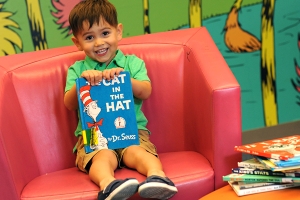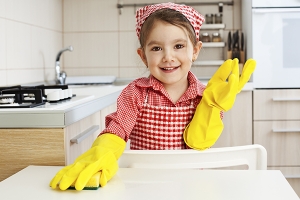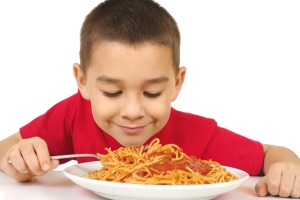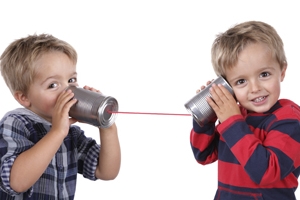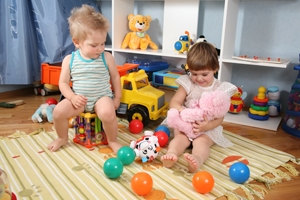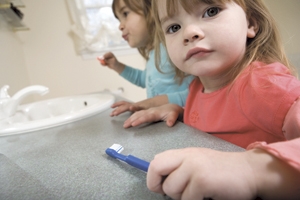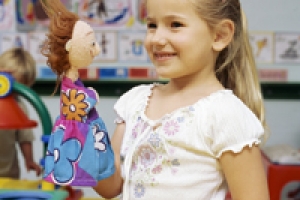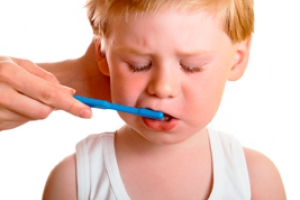Smart Foods, Smart Children
Helpful tips to boost your child's brainpower

This school season, jumpstart your child’s day with healthy, brain-boosting foods that can maximize brain power, and provide added benefits to your child’s academic performance. Because we as a nation are increasingly consuming genetically modified and over-processed foods, our children might not receive the proper nutrition needed for their developing brains. A child’s cognitive brain health is extremely dependent upon specific nutrients for its support and vital functions.
A typical American child’s diet could be labeled a “blood sugar roller coaster disaster,” because many children consume high amounts of refined sugars, flour and saturated fats. These foods cause a rapid spike in blood sugar followed by a drastic decline, resulting in mental impairment. New research from the University of Toronto shows that high-fat diets starve the brain from its energy supply. A study from the Journal of Nutrition conducted in August 2005 found connections between saturated fats and brain function in kids. Cholesterol intake was found to reduce children’s performance on memory tests. In fact, with each 100mg intake of cholesterol, poor test performance increased by a staggering 25 percent.
Brain Health Enhancers
B vitamins are vital for normal brain and nerve function. Evidence suggests that low blood levels of B vitamins, such as B1, B12, B6 and folic acid (or folate), may be linked to cognitive impairment. Be sure your child’s diet contains ample amounts of B vitamins for a healthy brain! Great sources of B1, B6 and folic acid are whole grains and fortified cereals and beans, peas, strawberries, spinach, sunflower seeds, bananas and tomatoes. You’ll also find B12 in lean beef, trout, salmon, tuna, pork, chicken, eggs and low-fat dairy products.
Minerals, such as iron, magnesium, zinc and calcium, help maximize brain function. You will find iron and zinc in lean beef, beans, lentils and other whole grains. Dairy products and dark leafy green vegetables are great natural sources of calcium.
The brain also relies on high-quality proteins in order to maintain a strong support system. Select lean beef, chicken, fish, eggs and low fat dairy products. Avoid any protein that has been fried, including meat, chicken or fish, because they contain high amounts of saturated fats.
Essential fatty acids are the most critical components for boosting brainpower. Docosahexaenoic acid (DHA) from fish and cod liver oil is a key nutrient for brain health. Most researchers agree that DHA plays a vital role in managing behavior, mood, memory and brain development. Currently, researchers are studying the effectiveness of DHA for Attention Deficit Disorder (ADD), depression, autism and Asperger syndrome.
Healthy snacks are essential for proper glucose supply to the brain. The primary energy source for brain function is glucose (sugar). Children have smaller organs and smaller appetites than adults, and it’s important to keep a steady supply of glucose to the brain through healthy snacks. Unfortunately, most snack foods are high in sugars and fats, which actually disrupt brain function. For snacking, choose long-lasting energy foods that provide complex carbohydrates.
Healthy Snack Options
• Hummus dip is perfect with baby carrots, apples or celery.
• Farm-fresh fruits such as apples, peaches, grapes or strawberries.
• Make veggies fun! Grape tomatoes are juicy and easy to eat. For a quick, crunchy and flavorful snack, sliced cucumbers, melons or sweet red peppers make a simple and easy snack to prepare, and can be cut into fun shapes for kids.
• A slice of multigrain or oat bran bread with almond butter spread is filling and loaded with nutrients.
• Choose prepackaged bags of toasted almonds, peanuts and other nutritious nuts, dried fruits and trail mixes, or buy bulk and assemble your own.
• Select all-natural snacks, such as low fat pretzels, baked or multigrain chips or plain popcorn.
Lifestyle Promoters of Brain Health
Limit television for your child. A published report from the Journal of Pediatrics reported that for every hour a day a child watches TV, there is a 10 percent increased chance of that child being diagnosed with ADD. According to the American Academy of Child and Adolescent Psychiatry, children spend three to four hours a day watching TV, which means if a child watches four hours of TV per day, she has a 40 percent chance of being diagnosed with ADD.
Limit video games. Researchers are concerned that children who are heavy gamers can end up with “video-game brain,” in which key parts of the frontal region of their brain become chronically underused. Studies also show that playing video games can increase heart rate and blood pressure, and decrease prefrontal lobe activity while the person is playing the game. This could also account for changes in mood, causing children to become more aggressive or emotional.
Get lots of playtime. Increase physical activity for 20-30 minutes, five to seven times a week. Physical activity helps reduce stress and has been shown to help alleviate the symptoms of depression in children. Incorporate physical activities such as bike rides or walks into your family’s routine for a healthy lifestyle for everyone.
Janet Little is a Certified Nutritionist with Henry’s Farmers Markets.



